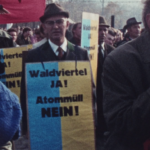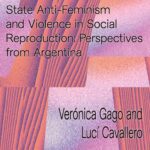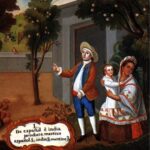 Reihe „INTERAKTIONEN“ des Instituts für Zeitgeschichte der Univ. Wien (Web)
Reihe „INTERAKTIONEN“ des Instituts für Zeitgeschichte der Univ. Wien (Web)
Zeit: 16.01.2025, 11:30 Uhr
Ort: Institut für Zeitgeschichte, SR 1, Spitalg. 2-4/Hof 1, 1090 Wien
Das österreichische Filmmuseum bewahrt zahlreiche Filme, die zwischen den 1920er- und 1990er-Jahren von Privatpersonen in Wien gedreht wurden. Diese Filme dokumentieren das Leben und die Umgebung der Menschen auf analogem Film und bieten eine einzigartige Quelle zur Erforschung von Alltagskultur und Zeitgeschichte. Das Projekt „Abenteuer Alltag“ zielt darauf ab, Amateurfilme als „lebendige Dokumente“ der Alltagsgeschichte mithilfe innovativer Technologien zu erschließen: Automatische Analyse, zeit- und ortsbasierte Annotationen, kombiniert mit modernsten Metadatenstandards. Dabei sollen Filme sekundengenau getagged, beschrieben und mit Kontextmaterialien wie Textdokumenten, Fotografien, Objekten, Interviews und Geodaten verknüpft werden. Das Ziel ist es, Best-Practice-Richtlinien und technische Lösungen zu entwickeln, um Amateurfilme digital zugänglich zu machen. Durch hochauflösende Digitalisierung, KI-gestützte Analyse und benutzerfreundliche Webinterfaces können Nutzer*innen Filme sichten, nach Orten, Personen und Ereignissen suchen, Querverbindungen entdecken.
Der Vortrag widmet sich dem Projekt und diskutiert begleitende Fragen: Wie arbeiten wir mit privatem Filmmaterial, das ursprünglich nicht für die Öffentlichkeit bestimmt war? Und wie beeinflussen nichtmenschliche Akteure wie KI die Filmanalyse und kuratorische Arbeit? Continue reading

 Matthias Becher, Institut für Geschichtswissenschaft – Abteilung für Mittelalterliche Geschichte der Univ. Bonn
Matthias Becher, Institut für Geschichtswissenschaft – Abteilung für Mittelalterliche Geschichte der Univ. Bonn  Veranstaltungsreihe „*at the Library“ der Fachbereichsbibliothek (FB) Zeitgeschichte der Univ. Wien und Institut für historische Sozialforschung (IHSF)
Veranstaltungsreihe „*at the Library“ der Fachbereichsbibliothek (FB) Zeitgeschichte der Univ. Wien und Institut für historische Sozialforschung (IHSF)  Opening Event Tenure Track Professorship Economic Anthropology at the Univ. of Vienna of Andreas Streinzer
Opening Event Tenure Track Professorship Economic Anthropology at the Univ. of Vienna of Andreas Streinzer  Sarah Albiez-Wieck, Univ. of Münster; Centre for Empire Studies: (Post)colonial Histories and Global Entanglements
Sarah Albiez-Wieck, Univ. of Münster; Centre for Empire Studies: (Post)colonial Histories and Global Entanglements  Institut für die Erforschung der Habsburgermonarchie und des Balkanraumes der Österreichischen Akademie der Wissenschaften
Institut für die Erforschung der Habsburgermonarchie und des Balkanraumes der Österreichischen Akademie der Wissenschaften  Wien Museum
Wien Museum  Institut für Historische Sozialforschung, AK Wien
Institut für Historische Sozialforschung, AK Wien  Arbeitskreis Geschichte der Race, Sexualität & Geschlecht in der BRD, Purdue Univ., Univ. of Stirling
Arbeitskreis Geschichte der Race, Sexualität & Geschlecht in der BRD, Purdue Univ., Univ. of Stirling